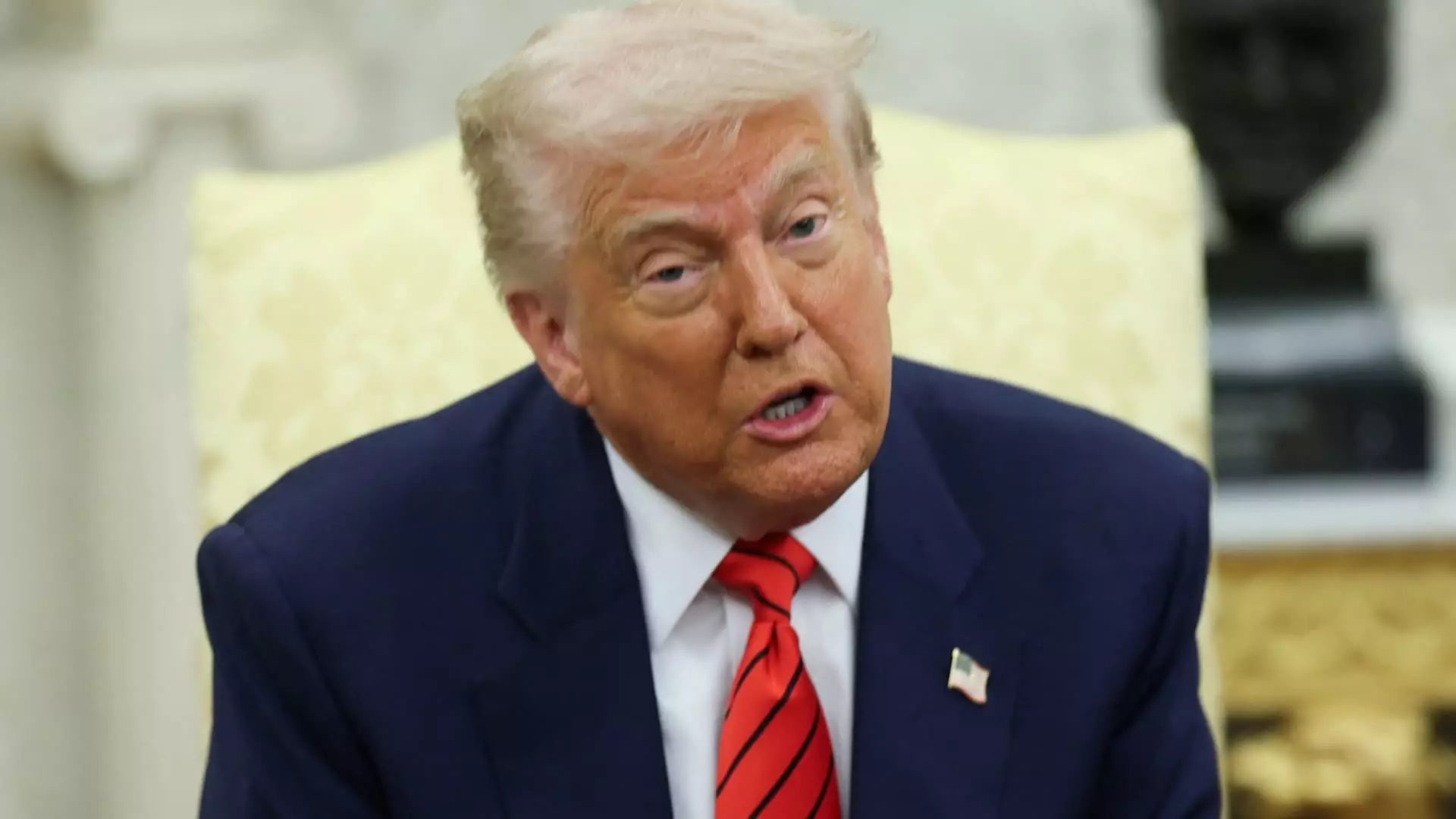In a striking divergence from previous assertions, President Donald Trump recently declared that the United States does not urgently need to finalize trade deals with international partners. During a meeting with Canadian Prime Minister Mark Carney, Trump expressed his frustration over ongoing queries regarding the status of impending agreements. “Why are they asking when we’re going to sign deals? They want a piece of our market, not the other way around,” he asserted, seemingly dismissing the pressing expectations of trade negotiations. This turn of phrase raises alarming questions about the administration’s overarching strategy and intentions in an increasingly complex global market.
The inconsistency between Trump’s current messages and his administration’s ongoing campaign for bilateral trade agreements is hard to ignore. While Treasury Secretary Scott Bessent previously indicated that the U.S. was “very close to some deals,” this newfound dismissal appears not merely like an off-the-cuff remark but part of a growing pattern of rhetoric that minimizes the importance of structured trade relations. It highlights not only the internal disarray within the Trump administration but also raises concern among investors and business leaders who are desperate for clarity.
Disjointed Leadership
It’s disconcerting how Trump’s comments highlight a significant misalignment between his vision and the expectations set by his staff. During a turbulent news cycle, one would expect cohesive messaging from the White House, especially on critical economic issues such as trade. His statement that “we will sign some deals” juxtaposed with his criticism of aides for over-promising deals leaves one perplexed and questions his commitment toward any progressive trade policies.
This incoherence feeds into the already fraught relationship that many international leaders have with the U.S. under Trump’s presidency. While he posits America as a “super luxury store,” his lack of clarity about pricing and product availability in international trade creates an environment where potential partners might hesitate to engage on U.S. terms. It paints a dystopian picture of U.S. foreign policy where the administration’s lack of proactive engagement could not only hamper access to other markets but may also isolate America in the global trade arena.
Market Reactions and Investor Anxiety
The immediate financial implications of Trump’s remarks were evident as U.S. markets dipped shortly after his comments about trade agreements. Investors rely on substantial trade deals, not just as sources of profit, but as indicators of the economic health and diplomatic fortitude of the nation. The ambiguity of America’s position on trade is troubling; it undermines the foundational principles of commerce, confidence, and cooperation. Businesses seeking stability in an increasingly volatile environment cannot afford to base their strategies on whims of the executive branch.
Moreover, in a world where economies are interconnected, retreating from structured trade relationships could result in significant economic repercussions. As the potential impact of tariffs looms, stakeholders are increasingly anxious about the repercussions of an untethered approach to trade. It sharply contrasts with the need for partnerships founded on respect, mutual benefit, and the shared goal of economic prosperity—a fundamental tenet for even the most market-driven leaders.
The Broader Implications of Isolationist Policies
Trump’s rhetoric and apparent preference for unilateralism have wider implications beyond immediate market fluctuations. When American leadership wavers or prioritizes a self-serving agenda over collaborative arrangements, it risks inviting a geopolitical vacuum. Countries like China and India are waiting in the wings, eager to establish their own rules and trade norms. The absence of American input in vital agreements may allow these countries to shape global economic policies and diminish American influence over time.
Furthermore, the pivot toward nonchalance about trade deals sends a troubling signal to allies and adversaries alike. In this era where global interdependence reigns, such isolationist sentiments could erode trust and cooperation that are hallmarks of international relations. America must grapple with the long-term consequences of this trade fever and realize that for every action, there are inevitable reactions that could shape the global landscape for generations to come.
As Trump navigates the tumultuous waters of domestic and international trade, the need for clarity, vision, and a unified strategy cannot be overstated. The stakes are high, and the choices made today—driven by rhetoric or otherwise—will undoubtedly carve out the contours of tomorrow.

